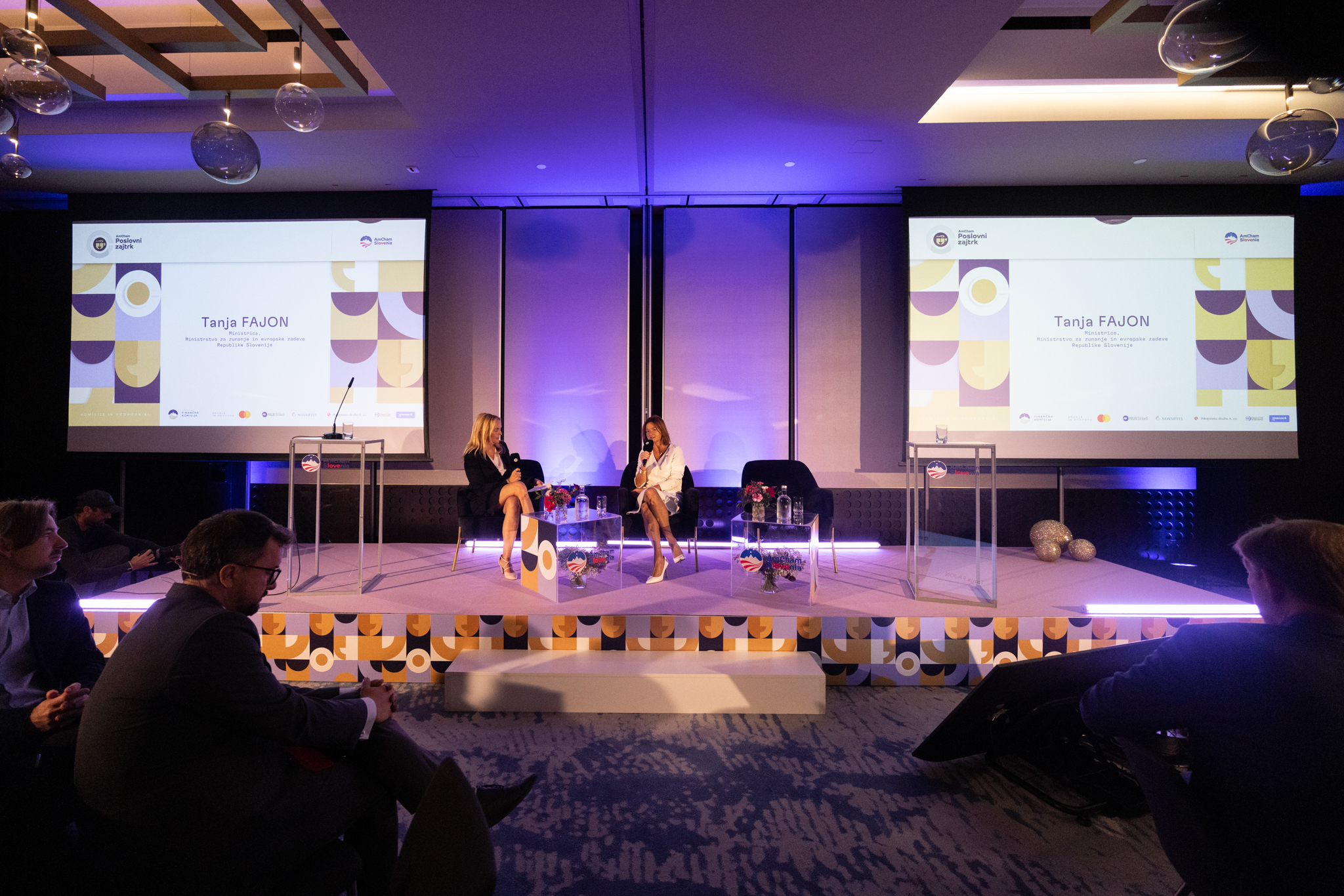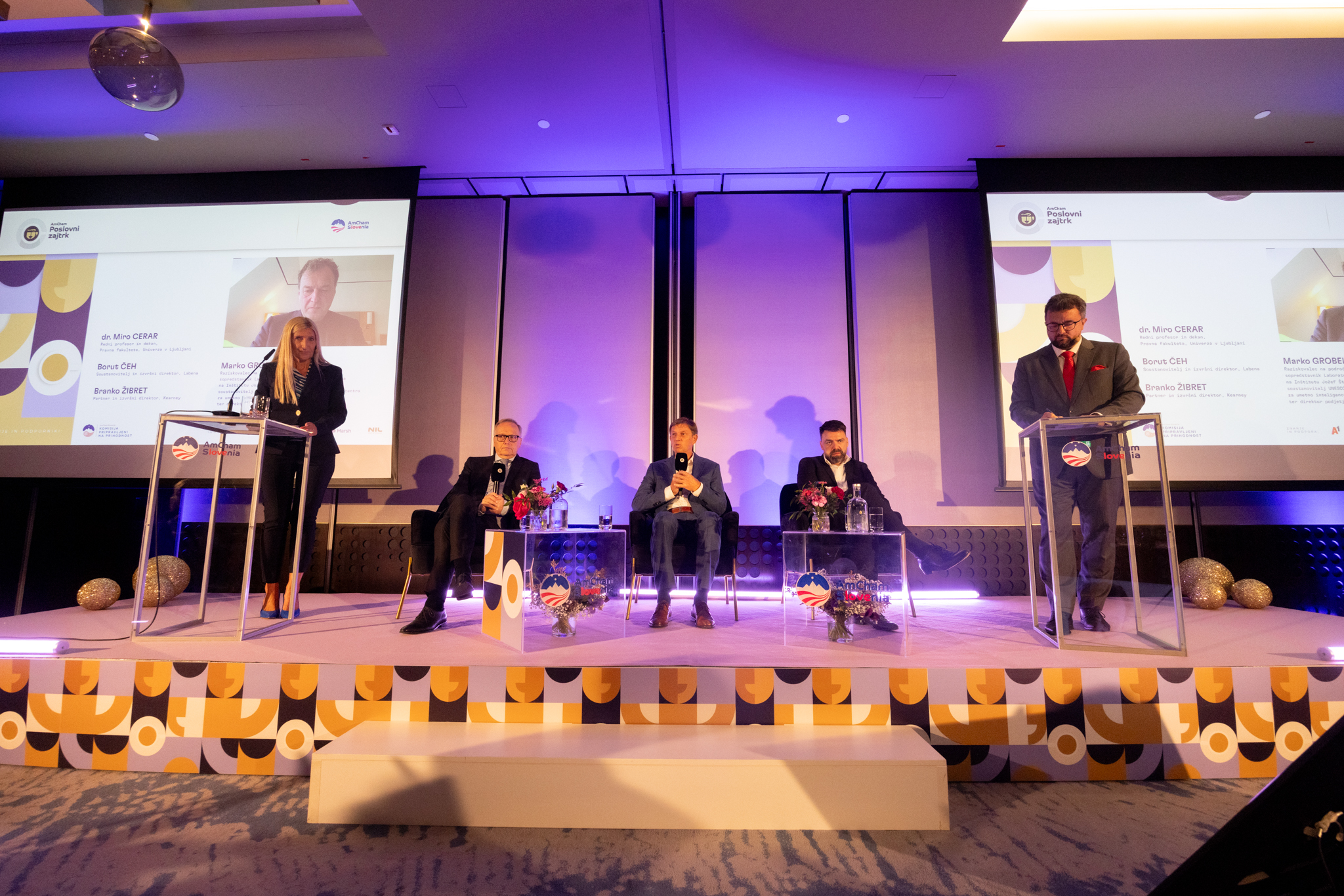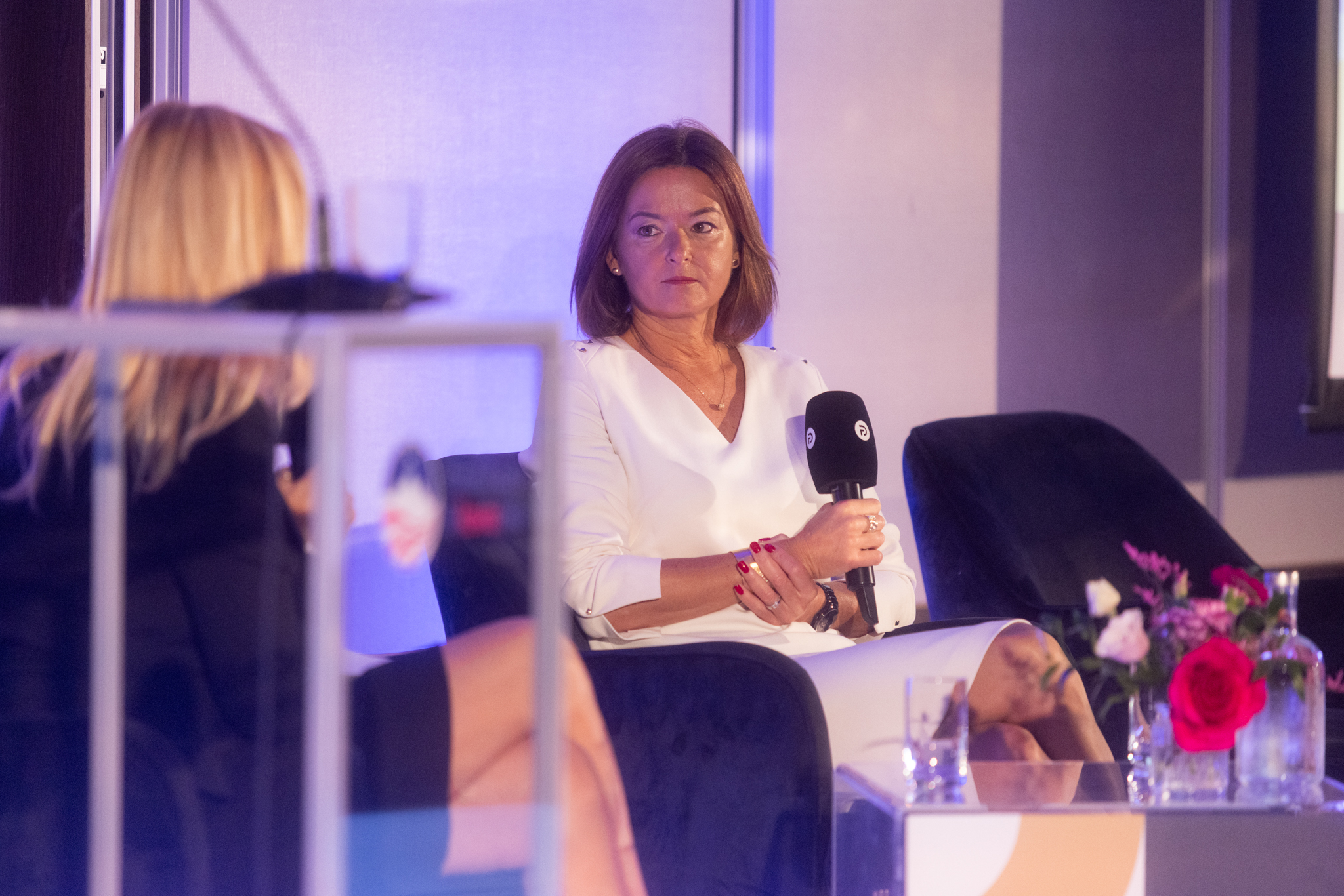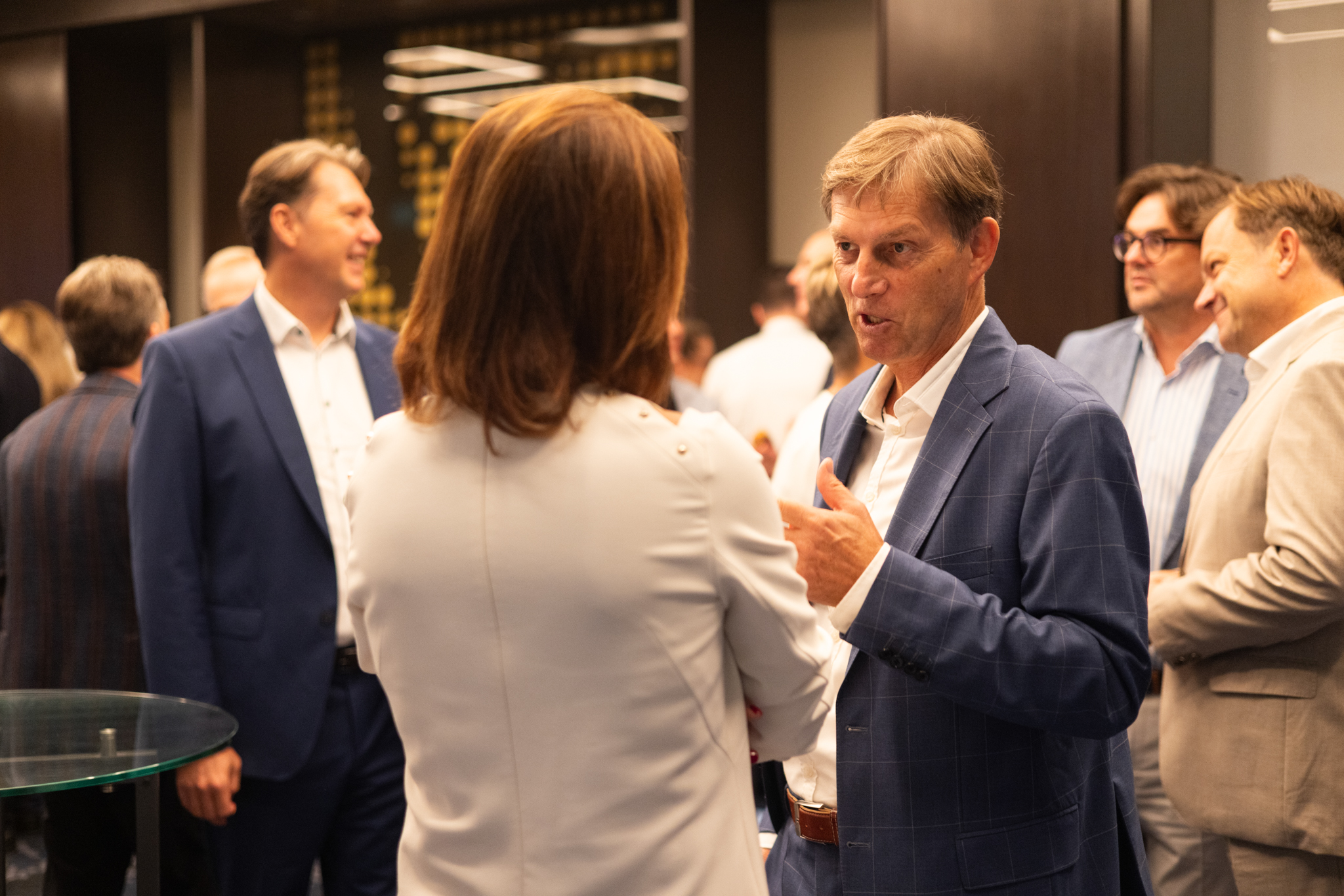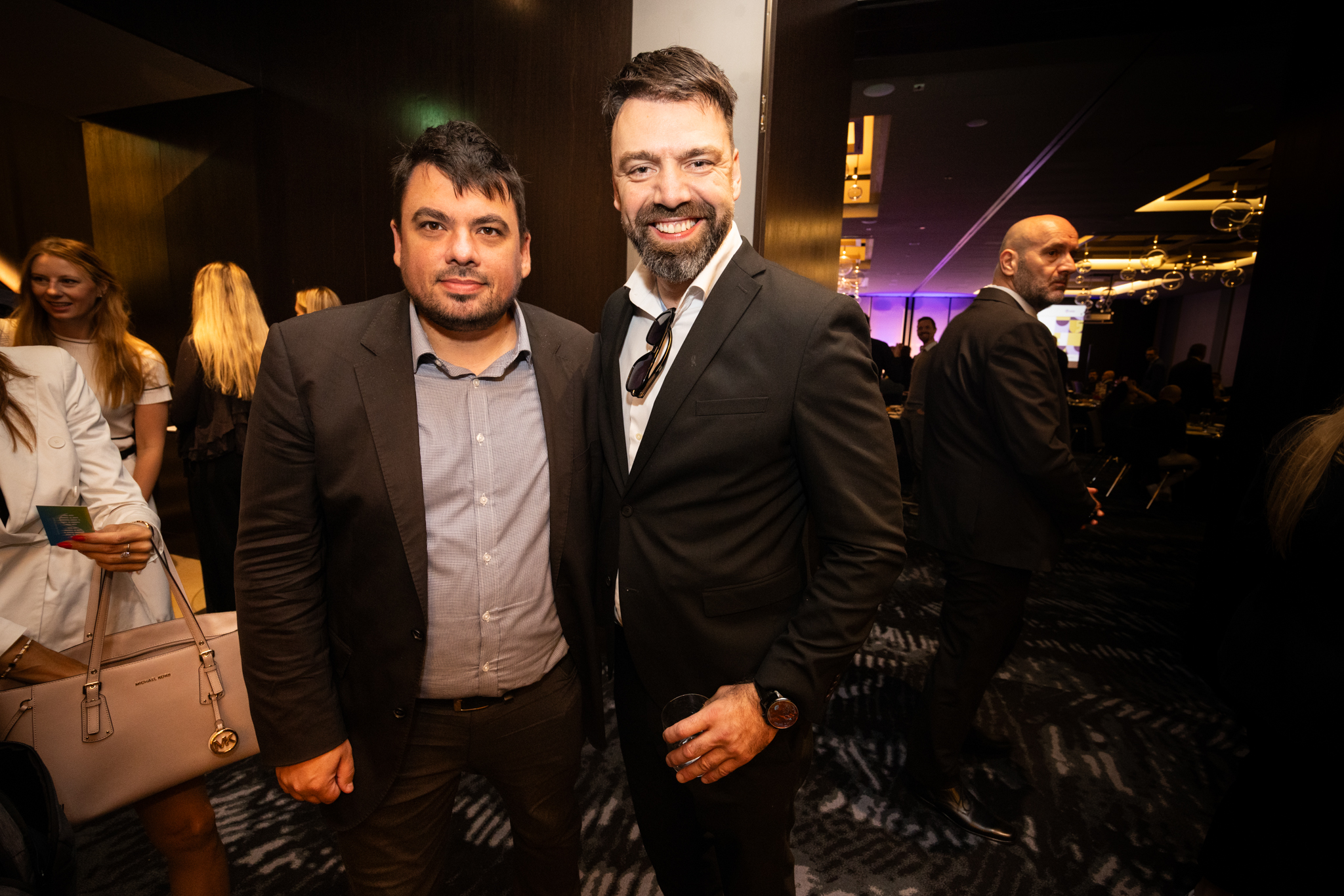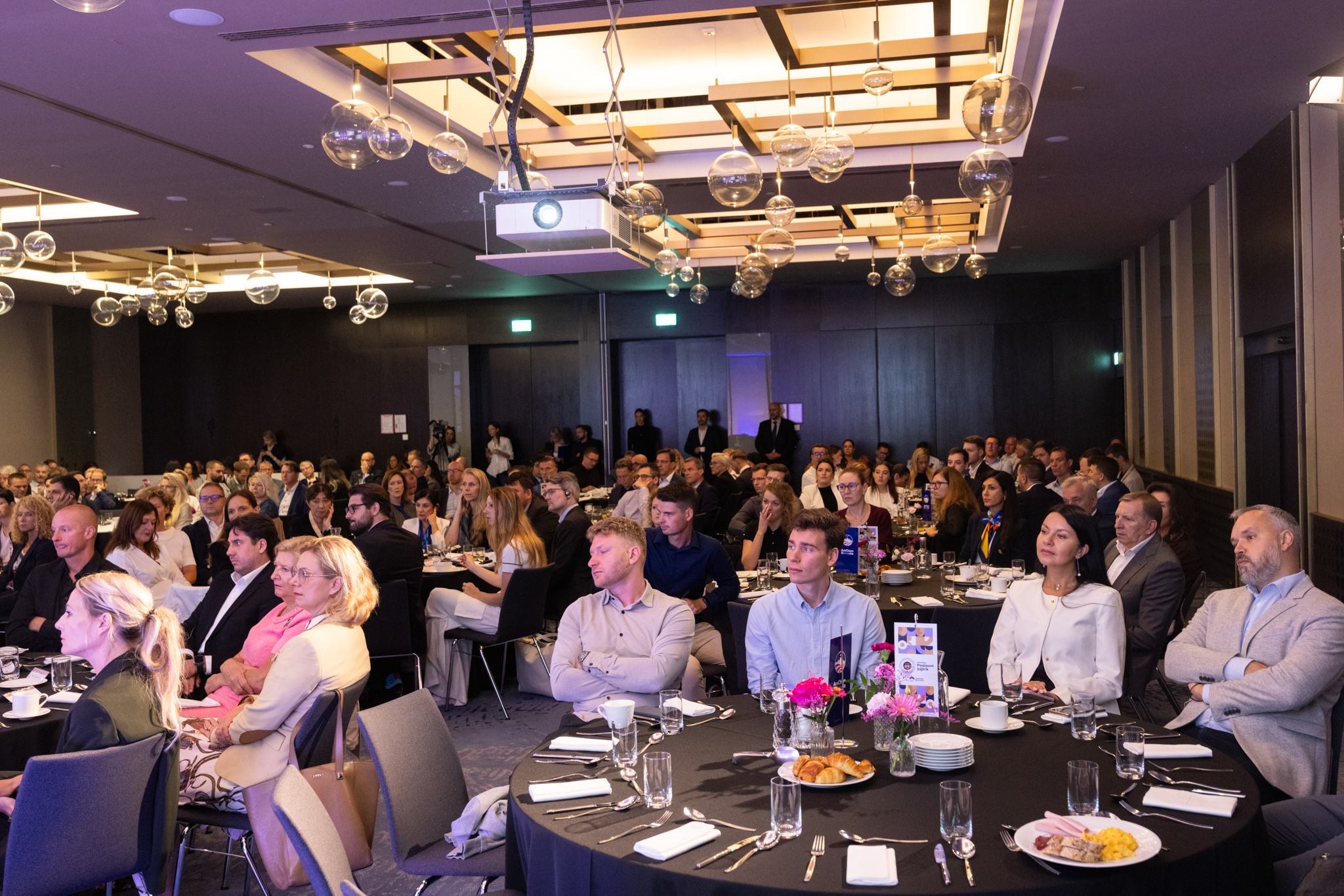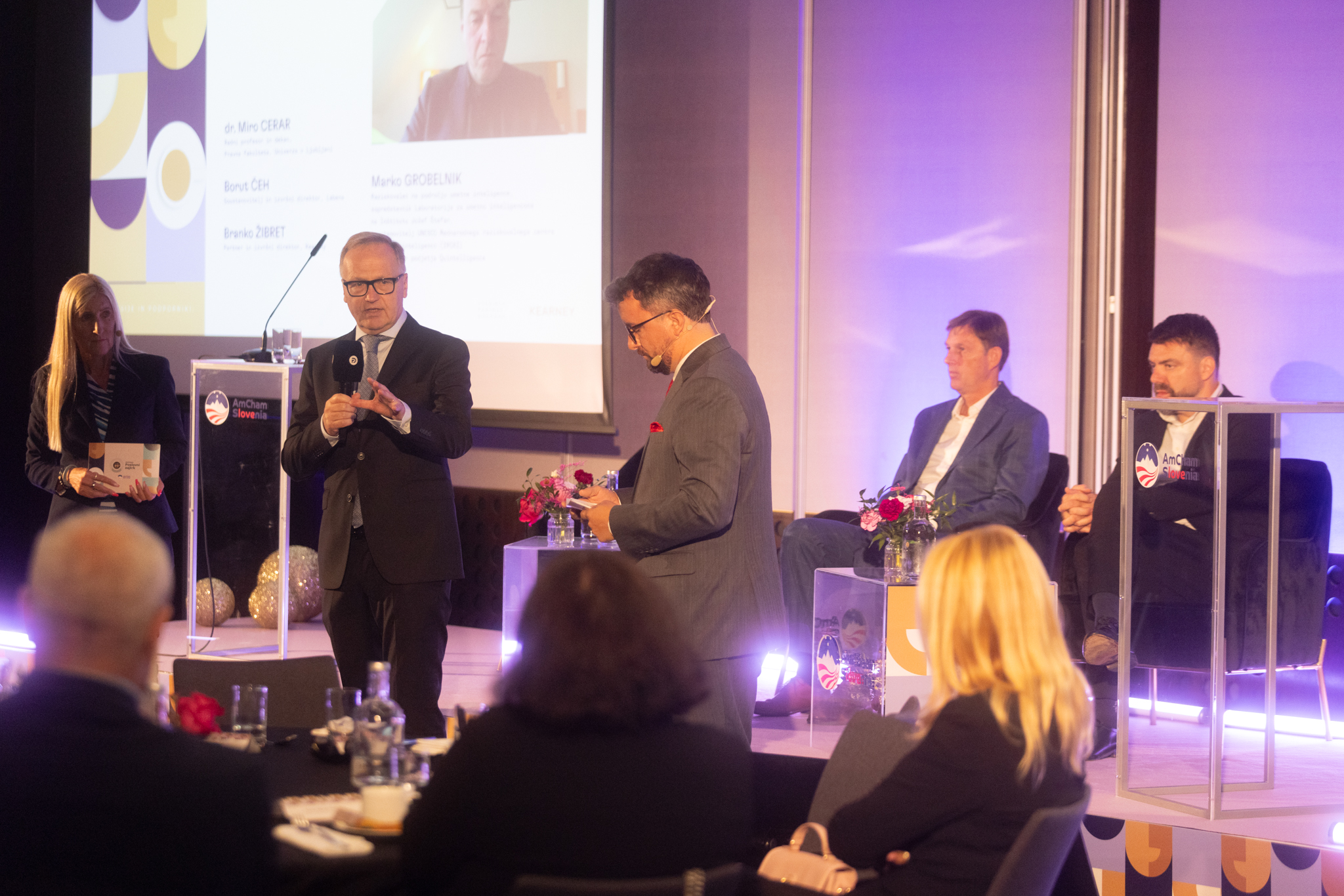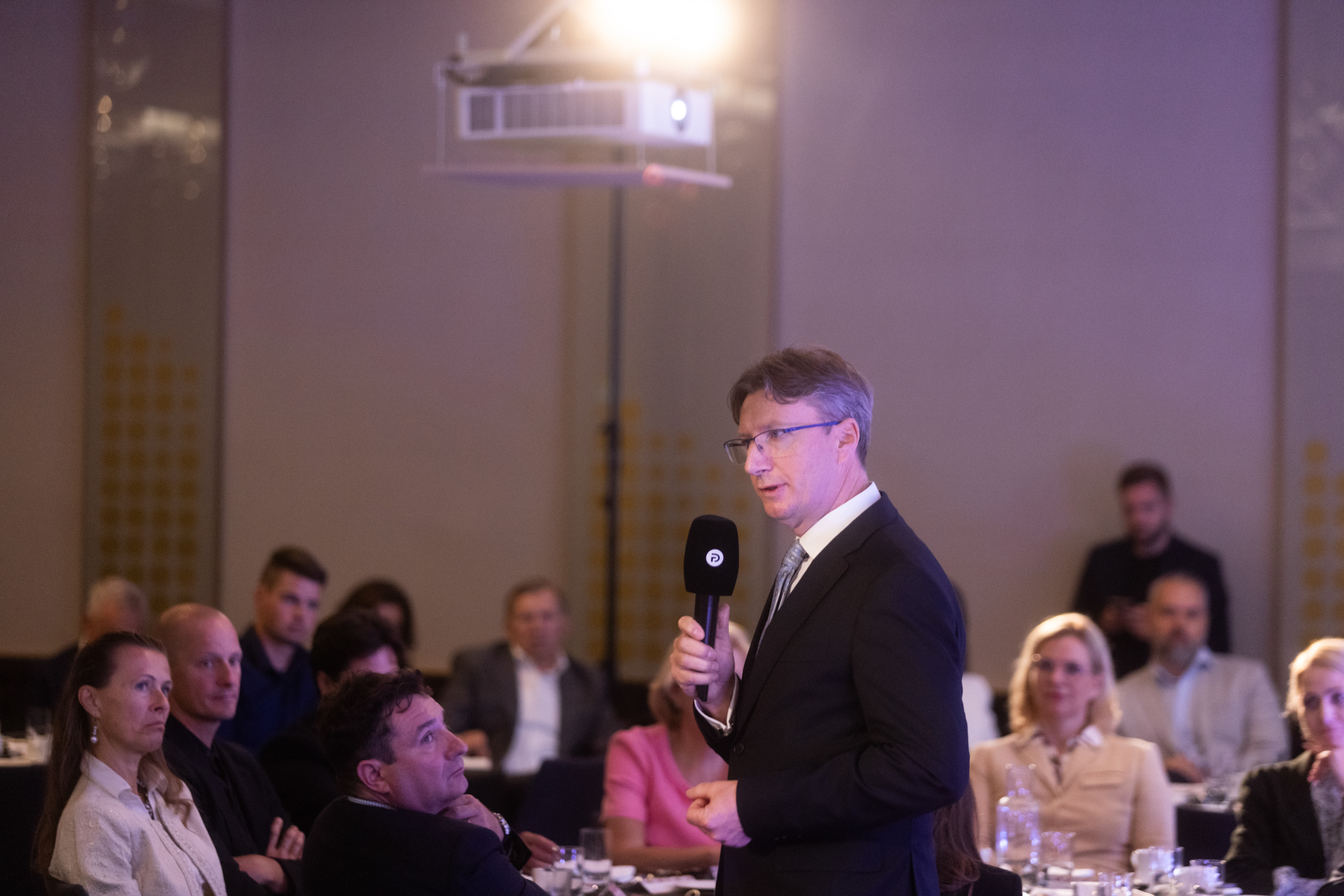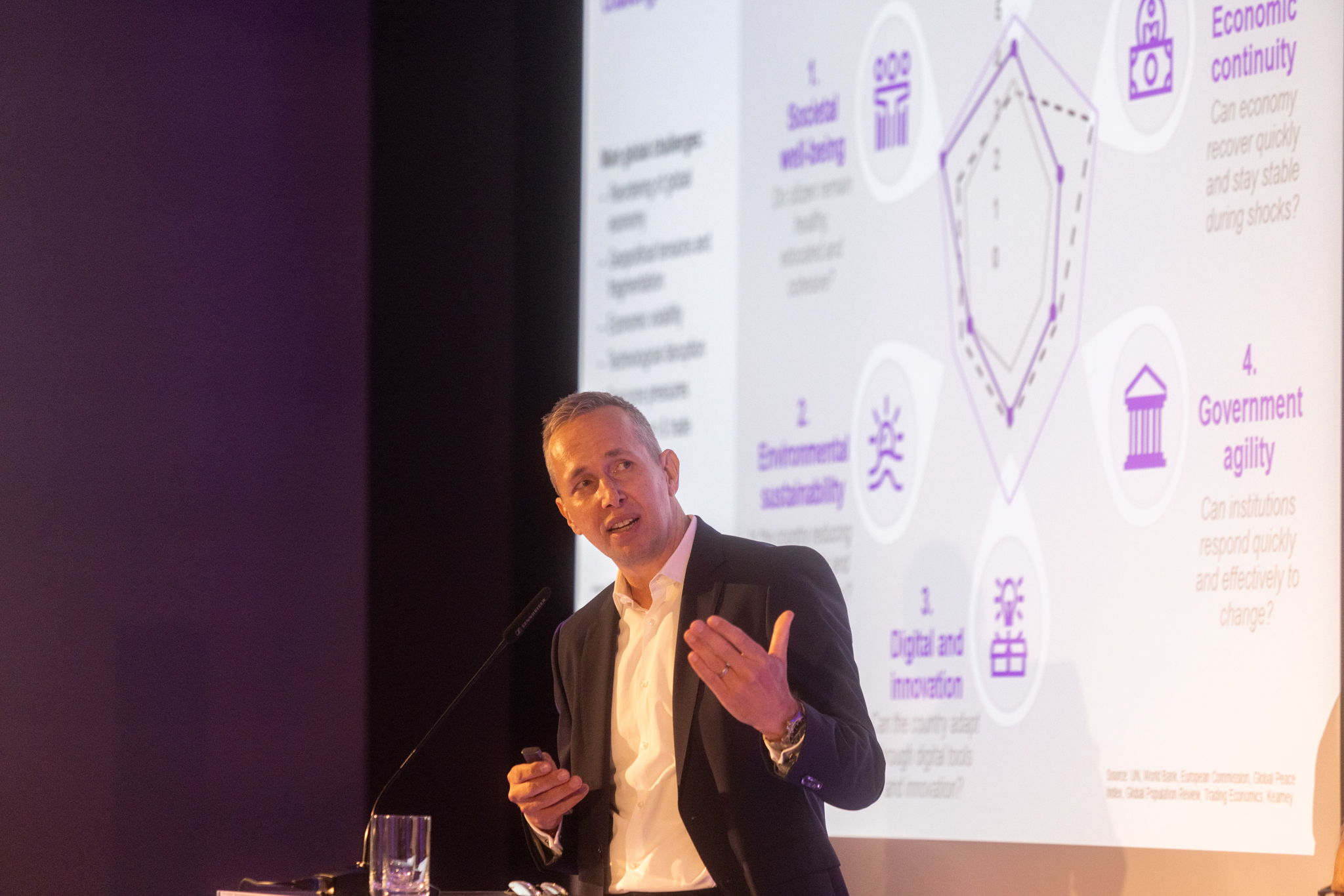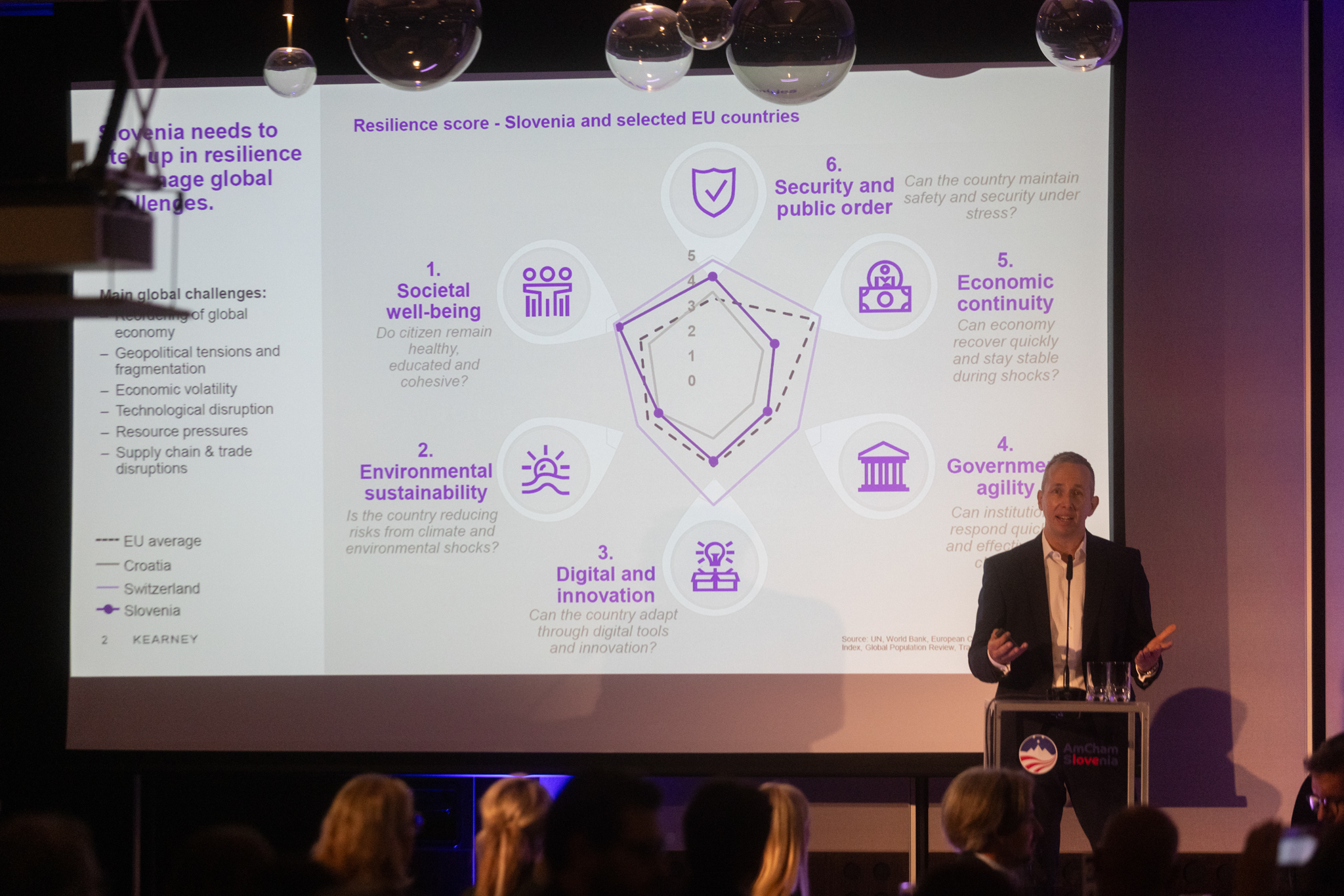If we know how to apply this knowledge across all areas, we can be extremely successful.”
At the first AmCham Business Breakfast after the summer, titled “Global Games. How well does Slovenia play?”, representatives from business, politics, diplomacy, and science gathered to answer the question of how prepared Slovenia is for the new global reality. The discussions focused on Slovenia’s role in international politics and on how, as a society, we can strengthen internal unity and foster cooperation between the state and the business community. Only through dialogue and collaboration can we turn the challenges of the future into opportunities.
Tanja Fajon, Minister of European and Foreign Affairs, underlined that for Slovenia it is crucial to strengthen multilateralism, cooperation, and the search for new partnerships – both within the EU and NATO as well as more broadly. “Slovenia is a small body with a big brain. If we know how to apply this knowledge across all areas, we can be extremely successful.” She also recalled that Slovenia strengthened its credibility with a principled stance: “We are a small democracy, but confident, outspoken, and principled.”
She pointed out the shift of geopolitical gravity to the Indo-Pacific, where Europe is often lagging behind: “Statistics show that we are losing power. Yet I believe that the 500-million-strong European market, if it builds on resilience, economy, and internal unity, can turn this into an opportunity.” She also emphasized the importance of the transatlantic partnership: “The transatlantic alliance is a strategic partnership for Slovenia and Europe. It is important even when we disagree – because it gives us the possibility to talk openly about it. We are strongest as allies in many areas.”
Dr. Miro Cerar, Full Professor and Dean, Faculty of Law, University of Ljubljana, added: “For a successful foreign policy, it is crucial how strong and successful we are at home, since foreign policy is always also a reflection of the internal.” He stressed that in the development of artificial intelligence, we must not forget that humans have not only knowledge and symbols but also heart – and it is precisely this human dimension that must not be lost.
The content partner of the event, Kearney, presented a study on Slovenia’s resilience, showing that the country exceeds the European average in terms of social well-being, security, and public order, while at the same time revealing major challenges that will be decisive for the future. Key risks include high dependency on energy imports and low food self-sufficiency, with Slovenia being fully self-sufficient only in milk. The report also points out Slovenia’s lag in digitalization – the share of ICT specialists in total employment is below the EU average, and corporate investments in ICT research and development fall behind leading countries. In addition, the study warns of the need to strengthen the domestic defense industry, the innovation ecosystem, and to modernize critical infrastructure. These findings raise the question of whether the foundations we are laying today are strong enough to ensure long-term resilience and competitiveness.
Borut Čeh, Co-Founder and CEO of Labena, stressed that health is the foundation of resilience: “When we talk about resilience, it is important to be self-sufficient in food, energy, and security. But the basis of everything is health.” He added that Slovenia has a strategic advantage in pharmaceuticals and biotechnology, where it can demonstrate its strength, for example with initiatives such as Slovenia Biotech Hills: “The 21st century will be the century of artificial intelligence and biotechnology. Whoever masters these two areas will lead the world.”
Branko Žibret, Partner at Kearney, highlighted the importance of pragmatism in business and added: “International relations have never been as asymmetrical as they are today – which is why it is crucial for Slovenia to remain recognizable and connected … When Slovenians decide on something, we see it through – but we must find meaning in it. The meaning of this community is that we live well here, that we will not worry about pensions. This is the responsibility of those who choose to be leaders.”
Marko Grobelnik, Researcher in Artificial Intelligence, Co-Lead of the Artificial Intelligence Laboratory at the Jožef Stefan Institute, Co-Founder of the UNESCO International Research Center on AI (IRCAI), and CEO of Quintelligence, emphasized that we are living in a time of great transition, where technology is becoming the decisive factor in the development of societies. The key moment of this era, in his view, is artificial intelligence: “The path from idea to realization has never been so short – AI today is accessible almost for free. For small communities such as Slovenia, this is a once-in-a-lifetime opportunity.”
The event also featured remarks from the new President of AmCham Slovenia, Beno Ceglar, CEO of NIL Slovenia, who offered an optimistic outlook: “In Slovenia, we are good and we have exceptional potential, and it depends only on us whether we know how to use it. We must cooperate – especially the state and the economy. At AmCham, we will continue working to improve the living and business environment.”
The speakers agreed that with knowledge, innovation, and international cooperation, Slovenia can position itself as a strategically important player. But the question remains: are the foundations we lay today strong enough for us to play among the best tomorrow?
